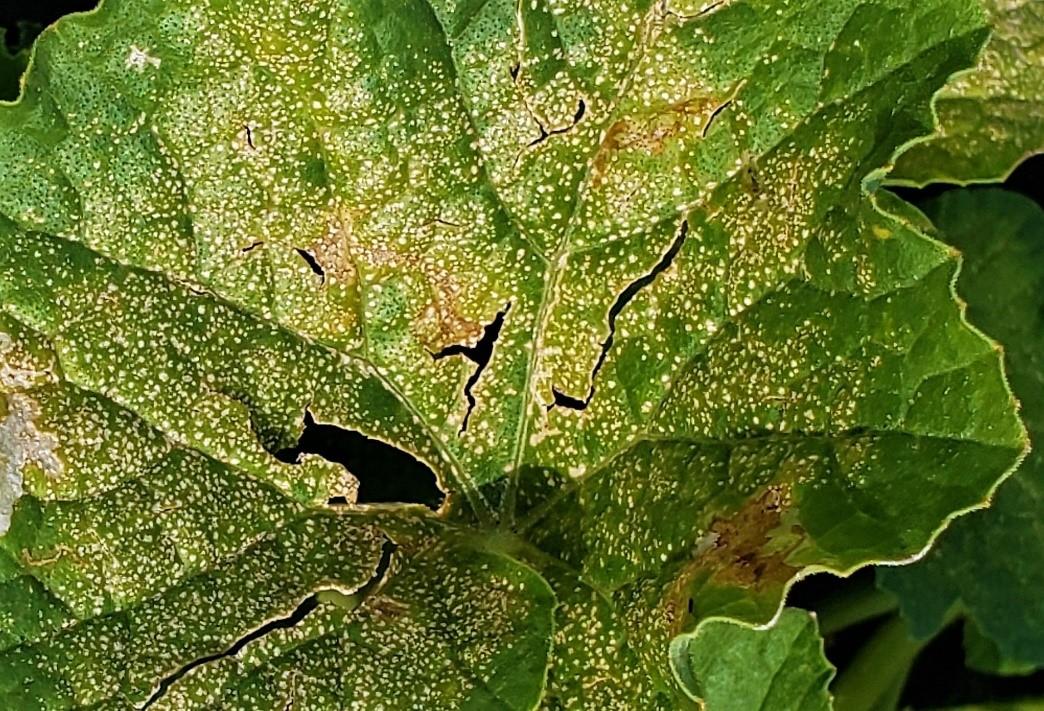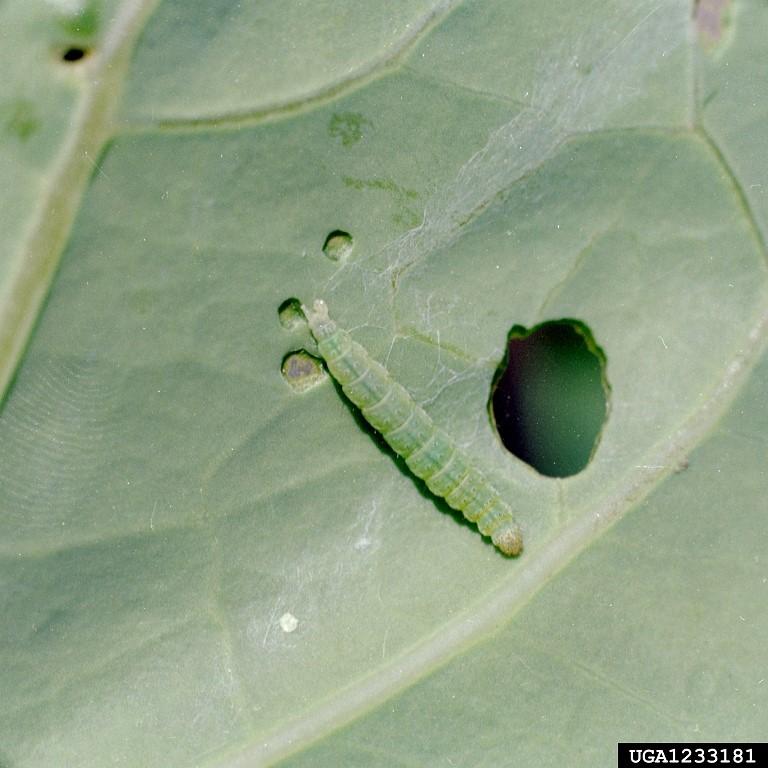
August 2022 | Volume 13, Issue 5

Plant Growth Regulators for Controlling Apple Pre-harvest Drop
By Brian Money, Candidate for B.S. in Biochemistry, and Macarena Farcuh, Ph.D., Assistant Professor and Extension Specialist, University of Maryland, College Park
As apples ripen, among many other processes, they begin to increase their production of the ripening... Read more about Plant Growth Regulators for Controlling Apple Pre-harvest Drop
Possible Changes to Atrazine Use
Kurt Vollmer, Extension Weed Management Specialist, University of Maryland Extension
The EPA is proposing several changes to its interim registration review decision for atrazine. The primary issue is the aquatic ecosystem level of concern (CE-LOC). The EPA had previously set this level at 15 ppb, but this was challenged in the Ninth Circuit Court of Appeals. Currently the EPA is proposing a much lower CE-LOC level of 3.4 ppb. This proposed level will have significant impacts on growers’ ability to use atrazine and other triazine products. Labels will also likely include new language to help mitigate the risk to aquatic plant communities. These include:
- restricting atrazine applications when soils are saturated,
- restricting atrazine applications during rain or storm events,
- prohibiting aerial applications,
- and reducing the annual atrazine application rate from 2.5 lbs. to 2 lbs. per acre annually.
Additional information can be found here: https://list.mg2.mlgnserv.com/track/click?u=df0ec74ed0bf23e091847f07c1d2c483&id=c31eec13d8967c36&e=d300d03f14fec2b3https://list.mg2.mlgnserv.com/track/click?u=df0ec74ed0bf23e091847f07c1d2c483&id=c31eec13d8967c36&e=d300d03f14fec2b3. The EPA is currently seeking public comments about the proposed decision (https://www.epa.gov/dockets/commenting-epa-dockets).
In addition, the USDA Office of Pest Management Policy is conducting a related survey on atrazine usage practices for farmers involved in corn and sorghum production over the last three years (https://usdaopmp.gov1.qualtrics.com/jfe/form/SV_agW8JjsVXqR4jjg)

Ozone damage to cucurbit foliage common now in mid-Atlantic
By Jerry Brust, UME
The weather for the last week or so in our area has been ideal for air pollutants to cause injury to vegetable crops, especially cucurbits. One of these air pollutants is ozone, which is considered to be...Read more about Ozone damage to cucurbit foliage common now in mid-Atlantic
New Online Training Available to Assist Growers Better Understand Risk Management Tools
This summer, the University of Maryland (UMD) is partnering with the Maryland Department of Agriculture (MDA) and USDA to create a four-module online training course Maryland Farming Success.
This course will allow audiences to logically develop a plan, focused on financial skills, risk management tools, and legal topics regarding their farm operations, and understand additional existing assistance available from USDA, including Farm Service Agency (FSA) programs and Risk Management Agency programs. The online training course is separated into four modules designed around preparing farmers for success by providing information about available USDA programs and creating the ability for participants to have a successful business plan, including - mission and goals, enterprise budgeting, risk management, and legal risk management.
- FSA Overview features speaker USDA FSA Farm Program Chief Robert Wevodau. This module will discuss important program definitions, and introduce FSA programs that assist producers and operations.
- Crop Insurance Basics, features speaker Extension Legal Specialist Paul Goeringer. This module will discuss crop insurance basics, the federal crop insurance program, existing crop insurance products, how to manage risks in a farm operation, possible crop insurance tools, finding a crop insurance agent, and more.
- Farm Financial Management, features speaker Extension Educator, Shannon Dill. This module will discuss maintaining financial and production records, household budgets, financial statements, goal setting for farm business success, and personal and farm financial management.
- Basic Legal Tool Strategies And Business Organizations features speaker Extension Legal Specialist Paul Goeringer. This module will discuss legal issues in structuring the farm business, including business structures, risk management strategy tools for legal risks, legal strategies for farm business operations, and other legal competencies.
For more information on the Maryland Farming Success learning course, or to REGISTER to attend the course
This material is funded in partnership by USDA, Risk Management Agency, under award number RMA21CPT0011599.
Tomato and blossom end rot
by Jerry Brust, UME

This is just a reminder with the usual summer weather we have had lately with stretches of very high temperatures and the occasional very heavy down pour we have had over the last few weeks blossom end rot can become a real problem in tomatoes. Sunny days will suck water through a plant quickly and the downpours will disrupt calcium movement through the plant. The key is to try and maintain consistent soil moisture while the fruit is developing. Easier said than done I know, but soil moisture levels need to be monitored as best as they can. When you see something like figure 1, with all the tomatoes on a cluster with blossom end rot you know the soil moisture fluctuated greatly over a fairly long period of time. Applying some foliar calcium sprays may help, but the applications can’t overcome poor soil moisture management.

Broad mites found in raspberry fields
By Jerry Brust, UME
Broad mites Polyphagotarsonemus latus have been found in a couple of raspberry fields in Maryland in the last week or so. Most fields had light to moderate infestations of broad mites. The problem is recognizing whether or not you have broad mites because...Read more on Broad mites found in raspberry fields
Winter Killed Cover Crops for Vegetable Cropping Systems
Gordon Johnson, UD Extension Vegetable & Fruit Specialist
Note: This article was first published on the University of Delaware Weekly Crop Updates on August 5, 2022.
Cover crops that put on significant growth in the fall and then die during the winter can be very useful tools for vegetable cropping systems. These winter killed cover crops add organic matter, recycle nutrients, improve...Read more about Winter Killed Cover Crops for Vegetable Cropping Systems

-
-

Mid-Atlantic Commercial Vegetable Production Recommendations Guide
Mid-Atlantic Commercial Vegetable Production Recommendations Guide
Meetings and Events
UMES Small Farms Bus Tour
Date: August 31 and September 1, 2022 | Wednesday and Thursday
Time: 7:30 a.m. (Aug. 31) and ends at 6:00 p.m. (Sept.1)
Cost: Fees are $75 for a single registrant and $125 for a party of two. The deadline to register is August 24. Anyone in need of special services or accommodations must call 410-621-5450, Ext. 106 two weeks in advance.
Registration: https://farmbustour2022.eventbrite.com.
Description: UMES Extension’s summer Farm Bus Tour will be back on the road visiting farms in Eastern and Central Virginia, including a stop at Virginia State University College of Agriculture’s annual field day. Stops along the tour will introduce unique marketing approaches aimed at helping farmers work directly with the customer and leaving the middle-man out-improving the bottom line
The tour starts (at 7:30 a.m., Aug. 31) and ends (at 6 p.m., Sept. 1) at UMES. Registration includes bus transportation to farm sites, educational packets, lunch (Day One), and one-night hotel accommodation on Wednesday, August 31, in addition to VSU’s field day on Thursday, September 1.
Sprayer and Pesticide Application Twilight Meetings
Western Maryland: Thursday September 1, 2022, 5 - 8pm at the Western Maryland Research and Educa-tion Center, 18330 Keedysville Road, Keedysville, MD Registration: http://twilightmeeting.eventbrite.com/
Eastern Shore: Thursday September 8, 2022, 5 - 8pm at the Wye Research and Education Center Farm 211 Farm Lane, Queenstown MD. Registration: https://go.umd.edu/SprayerTwilight
New Online Course for Maryland Cottage Food Producers & On-Farm Home Processors
If you are starting a value-added food business in Maryland, sign up today for the Maryland Food Ventures interactive self-paced online course. This course covers information for food subject to Maryland Cottage Food or On-farm Home processing regulations, like high acid jams, most breads, dried herbs, and raw honey. For more information or to register go to go.umd.edu/mfvcourse
Vegetable & Fruit News, August 2022, Volume 13, Issue 5 (pdf)
Vegetable & Fruit News is a research-based publication for the commercial vegetable and fruit industry available electronically from April through October. Published by the University of Maryland Extension Agriculture and Food Systems team.
Subscribe to Fruit and Vegetable News
EDITOR
Emily Zobel
University of Maryland Extension Agent - Dorchester County
501 Court Lane, Room 208
Cambridge, MD 21613
Phone: (410) 410-228-8800
Email: ezobel@umd.edu
Note: Registered Trade Mark® Products, Manufacturers, or Companies mentioned within this newsletter are not to be considered as sole endorsements. The information has been provided for educational purposes only.
